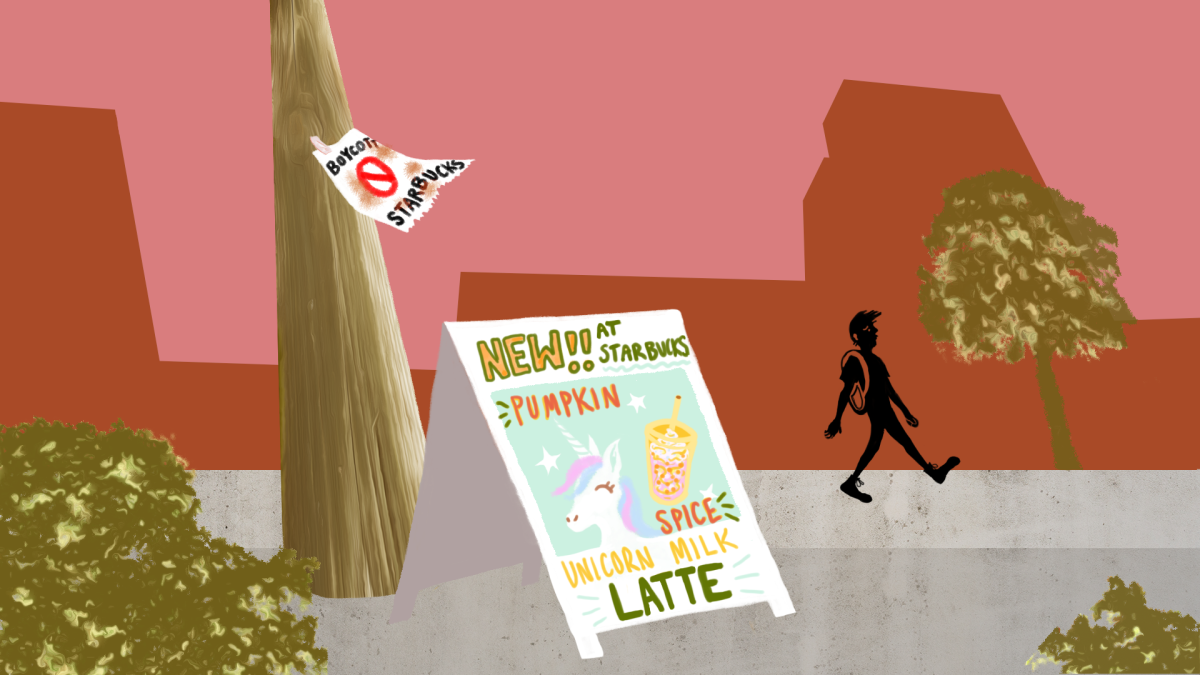There comes a time in every writing process where the idea outlining, word usage or phrase articulation becomes unnervingly stagnant. There are many factors that contribute to this situation, but an overlooked aspect of effective writing is the location where it happens. Any writer’s attempt to produce more fluid, cohesive and well-structured writing requires a practical shift in environment.
Unless someone lives in an extremely minimalist home, writing at home, or in your dorm room, should be avoided. The home provides too many opportunities for distraction, as well as a higher inclination toward them. These types of distractors are much more pronounced, not only in quantity and variety but also in severity and intensity.
To many students, home can mean a dorm room, an apartment or the actual house they grew up in. The common theme is the environmental association with relaxation, comfort and familiarity — not to mention the snacks in your fridge a few feet away. While these environmental cues are positively influential by definition, their underlying adverse effects often go unnoticed.
Once we’ve lived somewhere for a reasonable amount of time, it eventually loses its novelty. There’s no inspiration or insight to be gained from an environment so intimately familiar to us.
We’ve all observed, to some degree, that the familiarity and comfort that we apply to our homes can increase the limitations of and lower our sensitivity toward how we make use of its contents. We are much more likely to rhythmically bounce a tennis ball off the walls of our residence than off the walls of a classroom or library.
Another possibly overlooked factor when choosing somewhere to write is the number, and type, of people that are nearby. Ideally, focused writing should take place somewhere removed from the general hub of society. Some of history’s most influential writers have gone above and beyond to develop sheds, huts and nooks with a minimalist design that reinforced their desire to finish writing. Unfortunately, most students on a campus like NC State have neither the luxury of a “writing shed” nor adequate opportunities for isolation.
Again, one may escape by going home, yet a sufficient writing environment should either directly or indirectly supplement the actual process. Distractions can absolutely be propagated by a roommate, yet they are also most definitely an issue for those who live alone. As per the psychologist Gordon Allport, “the actual, imagined or implied presence of others” can influence our decision making, as well as our attitudes toward those decisions and actions.
This is not necessarily a downside of socialization; if a seemingly ideal writing space is already brimming with other people, take into account the kind of people that are present. When choosing a writing spot, I scope out areas known or designated for silent studying. The book stacks within the D.H. Hill come to mind as an example of this. In fact, there are various places throughout the library that are labeled as strictly quiet zones; these can be sufficiently quiet spots for writing. As I write, I allow myself to subconsciously adopt the observably similar mindsets, mannerisms and demeanors of other engaged and focused individuals.
If people continue to pose an attention problem, escaping to nature is a typically-encouraged solution. In addition to the lull in established human activity, the outdoors can relax the body and broaden the mind, leading it into novel directions. Nature can also kick-start the formation of that word, phrase, or description that the industrialized indoors have assisted in eluding us. If internet is not a requirement, taking a stroll to Pullen Park or Lake Raleigh could serve as an excellent spot for writing in the outdoors.
However, nature isn’t an option for everyone. If writing must take place inside, I would prioritize somewhere spacious with enough room to stretch and pace. Ideas need to properly manifest before being written down, so an auditorium with good legroom or a casual lounge area, such as the upper floors of Talley Student Union, can serve as a sort of mental canvas for any ideas running rampant through our brains.
Overall, writing takes effort and requires focus, and the wrong environment can deprive a writer of both. Input from our surroundings can fuel that process, but less so if said input conflicts with the purpose of the piece and the impact of what is being written.





